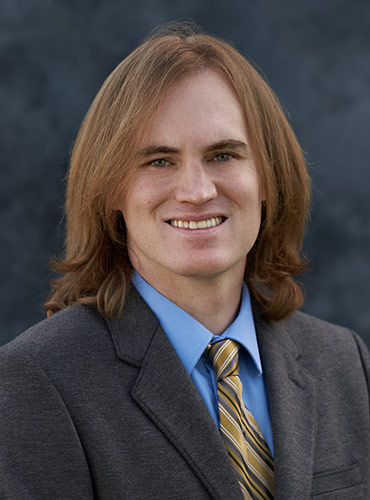Harrington Pathway Experience

Why were you interested in joining the Harrington Physician-Scientist Pathway?
My ultimate goal is to become an independent physician-scientist in Gastroenterology at a medical school with a research laboratory focused on both basic science and disease-oriented research. After completing a combined MD/PhD training program, I felt that a combined short-track program with guaranteed fellowship placement and protected research time would best enable me to achieve this goal. I was particularly drawn to the Harrington Pathway because of its strong clinical training (in both Internal Medicine and Gastroenterology) as well as breadth of research.
What kind of research background did you have before joining the program?
As an undergraduate, I had the privilege of performing research in three diverse areas of biomedical science (Dermatology, Immunology, and Neuroscience). Afterwards, I enrolled in the Cincinnati Medical Scientist Training Program, a multi-institutional MD/PhD program supported by the University of Cincinnati and Cincinnati Children’s, and graduated in 2019. As part of that program, I obtained my PhD in Immunology studying eosinophilic esophagitis (EoE) under the mentorship of Dr. Marc E. Rothenberg at Cincinnati Children’s investigating the alterations in esophageal epithelial differentiation that occur in patients with EoE and the regulation of IL-1 family cytokine activity by chromatin.
Why did you think the pathway would be a good fit for you? How did it stand out from other programs you were considering?
The Harrington Pathway was a good fit for a multitude of reasons. I was impressed by the rigor of the clinical training from both the Internal Medicine residency and the Gastroenterology fellowship and felt that I would fit in well with the culture among the trainees. I appreciated the guaranteed admission to the Gastroenterology fellowship without having to go through the ERAS Fellowship Match, the flexibility to schedule my protected research portion either right after residency or after completing the clinical fellowship, and the significant elective time built into the residency which can be used to either perform research or to begin preparations for the later protected research time (such as attending seminars and conferences to network and finding research mentors). Finally, I would be in remiss if I did not mention the diverse research enterprises present at University Hospitals and Case Western.
Was there a faculty member you were particularly interested in working with and why?
While I did not know exactly who I wished to be my research mentor prior to matriculation into the Harrington Pathway, I did know of multiple strong researchers in different areas of gastrointestinal inflammation, including Inflammatory Bowel Disease, at University Hospitals and Case Western. I also found it particularly exciting that this is one of a select number of programs in the country with an NIDDK-funded cross-institutional Silvio O. Conte Digestive Diseases Research Core Center.
How has the program advanced your research career so far?
At the beginning of residency, I was assigned a physician-scientist coach outside of my intended sub-specialty with whom I meet quarterly to discuss my current progress and how to best set up myself up for success later on in the program. In addition, I have been able to learn more about potential research mentors through the Agre Society, a monthly series where residents are able to interact directly with physician-scientists about their research and career trajectories. Finally, I have been provided a stipend that I can use to pay for membership in professional societies and travel to scientific meetings.
Do you have any advice for medical students who are considering a research pathway for their residency?
For anyone interested in becoming an independent physician-scientist with a clinical practice and a basic science research laboratory, I highly recommend combined fast-track research programs to streamline the ultimate transition into independent research. I think it is also important to find a program that has both multiple potential research mentors in your area of interest and diverse research in other areas. Faculty may leave or your clinical or research interests may change over the course of your training. Finally, I think it is important to consider the culture of a program as it is difficult to perform at your highest level if you do not get along with your colleagues or are not happy being at that institution.


